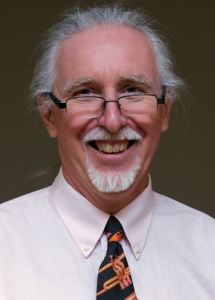
By Bob Hulteen
In 1985 I was fortunate to be invited by my then-pastor, Jim Ellison, to represent the synod at a national gathering in Chicago to discuss the church that was being formed by the merger of the Lutheran Church in America (LCA), the American Lutheran Church (ALC), and the association of Evangelical Lutheran Congregations (AELC). Lutherans from across the country came together to hear proposals from theologians, ethicists, and church leaders like Elizabeth Bettenhausen and Carl Braaten about the issues that were facing this merger.
Near the top of the list of conversation topics was the name of the merged denomination. As a young Lutheran, I was intrigued by the options: Some argued for one of the existing judicatory names to continue, but that seemed to be a non-starter for most people. Others preferred names that didn’t include any reference to Martin Luther (the “Church of the Augsburg Confession” or the “Evangelical Catholic Church of America” are two that I recall). Cogent arguments were made that it would help this new church to be more ecumenically focused and flexible if we didn’t include the name of a 15th century reformer.
As a recent college graduate who had thought about, but decided against, attending seminary, I was swept up by the bright lights of this historical decision-making gathering. I was impressed by the various arguments made by people whose names were familiar Lutheran royalty. I felt privileged to be in the company of those who were mapping out the possibilities of this new church. The future seemed bright.
I remember feeling like “evangelical” needed to be, and could be, redeemed. I was convinced that including it in the name of the new denomination was a faithful attempt at that redemption. Most of the representatives at that gathering agreed, and the name of our church became the “Evangelical Lutheran Church in America (ELCA).”
IN THE END MUCH of the conversation circled around whether to include the word “evangelical” in the branding. By the mid-1980s, that word was gaining credence for a certain expression of Christianity that became synonymous with fundamentalism. The recently formed Moral Majority had begun to use the term freely to describe the political movement it created.
I remember feeling like “evangelical” needed to be, and could be, redeemed. I was convinced that including it in the name of the new denomination was a faithful attempt at that redemption. Most of the representatives at that gathering agreed, and the name of our church became the “Evangelical Lutheran Church in America (ELCA).”
Today I hear many voices debating whether this was a good choice. Most Americans increasingly identify the term “evangelical” with the movement that connects conservative politics with fundamentalist theology. Mainline Protestant churches find it more and more difficult to differentiate themselves from this movement. Lutherans in particular are raising the question as to whether the name of our denomination creates more confusion than clarity – especially for those seekers who are otherwise attracted by the theological and social positions of the ELCA.
Both in person and on social media, people share anecdotes commending what they hear about “Lutherans,” but when they check out Lutheran churches online they veer toward Lutheran denominations other than the ELCA because of the word “evangelical” in our title. This generates discussion over whether this word expresses what we hope it does (“the good news”) or not. And, there are calls from some corners to remove the word from our denominational name.
Others argue that now is not the time to take the “gospel” out of our name. They say we could maybe part with “Lutheran,” but not with our identity as evangelists of the good news.
So, the discussion is re-ignited over the call to redeem a word that is sadly polarizing and weaponized within our culture.
It’s a worthy debate – and hopefully not just an esoteric one. The discussion can be critical if it indeed helps us clarify more deeply what our calling as Lutheran Christians is at this moment and in this place.
